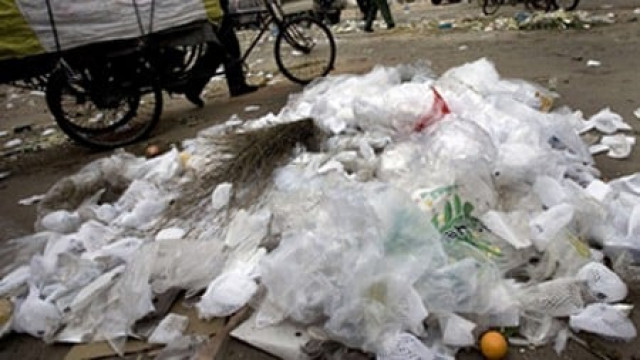WWF warns of plastic perils in Pakistan
Says country generates 2m tonnes of plastic waste annually, with 86% mismanaged

Pakistan generates nearly two million tonnes of plastic waste annually, of which 86% is improperly managed, severely harming human health and the environment, according to the World Wide Fund for Nature-Pakistan (WWF-Pakistan).
In a statement issued on World Environment Day, WWF highlighted that over 1.7 million tonnes of plastic end up in landfills, open dumps, waterways, and even food systems — placing Pakistan among the top 10 plastic-polluting countries globally.
WWF-Pakistan noted that plastic pollution is now one of the country's most pressing environmental challenges, contributing significantly to ecosystem degradation, biodiversity loss, and water contamination.
Pakistan also ranks among the highest in South Asia for plastic mismanagement, further burdening urban waste systems and increasing public health risks.
Globally, plastics have revolutionized industries due to their low cost and durability. However, the proliferation of single-use plastics (SUPs) — such as bottles, bags, wrappers, and cutlery — has created a growing crisis. According to the UN Environment Programme, approximately 400 million metric tonnes of plastic waste are generated worldwide each year, 36% of which consists of SUPs.
A 2023 study by the Pakistan Environmental Protection Agency revealed that less than 10% of the country's plastic waste is recycled. The rest contributes to landfill overflow, inefficient waste diversion, and pollution due to a lack of integrated waste management and limited investment in recycling infrastructure.
Plastic packaging, which constitutes 40% of global plastic production, is especially harmful due to its non-biodegradable nature. Composed of long-lasting polymers like polyethylene and polystyrene, these materials persist in the environment for centuries, polluting land, rivers, and oceans.
Studies estimate that over 14 million tonnes of plastic waste enter the oceans annually. Microplastics — tiny fragments resulting from plastic breakdown — have now been found in seafood, drinking water, and even human blood.

























COMMENTS
Comments are moderated and generally will be posted if they are on-topic and not abusive.
For more information, please see our Comments FAQ